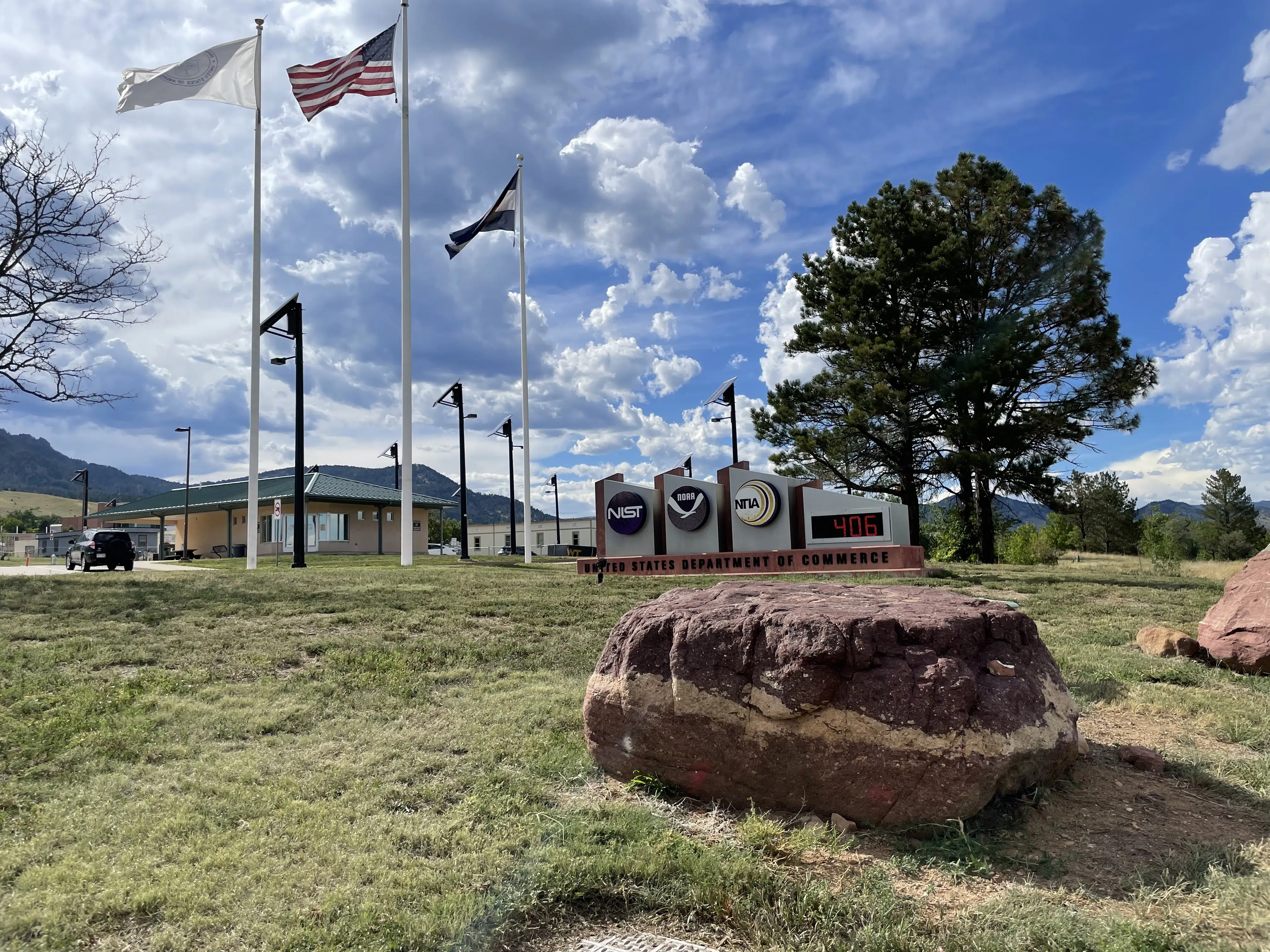Federal research funding cuts pose significant risks for Colorado economy
Labs, universities hit hard by spending reductions

President Donald Trump’s efforts to significantly reduce federal funding for scientific research threaten to shake up Colorado’s economy.
Over the past decades, Colorado has become a national leader in scientific research because of the state’s university system, strong scientific workforce pipeline, and increasing amount of investment capital flowing into the market. Last year, the University of Colorado and Colorado State University systems combined to attract a record-breaking $2.1 billion in total research funding. Colorado also boasts one of the highest concentrations of federal labs in the country, with 34 federal research institutions located in the state.
But that market faces significant threats from declining federal grant funding. On March 26, the Department of Health and Human Services canceled more than $12 billion in grants for infectious disease, mental health and addiction treatment. The move could cause Colorado to lose more than $230 million in COVID-19-related grants for state and local health departments. A federal judge temporarily blocked the cuts to research grants on April 3 after 23 states and the District of Columbia sued the Trump administration, but the future of the funding remains uncertain.
Meanwhile, Trump unilaterally capped overhead costs for grants from the National Institutes of Health at 15%, a move that cost universities and research institutions millions in rent and administrative costs. Even though that move was also temporarily halted by federal judges, it still created significant uncertainty throughout the scientific community.
Dan Powers, executive director of CO-LABS, a nonprofit consortium of federally funded labs in Colorado, told BizWest that the impact of the Trump administration’s moves to cut research funding is still unfolding. Even so, they will be widely felt across several industries.
“If you think of the technologies and information we use today, such as getting our weather forecasts, using our cell phones, trusting the equipment in hospitals for cancer treatment or other emergency surgeries, the ability to trust the food that we are picking up every day in the grocery stores–all of these conveniences that we take for granted have tap roots, often of decades to research and discoveries and ongoing analysis in federal research labs,” Powers said.
The impact of declining federal scientific funding will be felt across the state, and the Boulder Valley and Northern Colorado could face a significant disruption. The area is home to federal labs, as well as the University of Colorado Boulder and Colorado State University, two of the preeminent research universities in the country.
Economic impact
Colorado’s economy relies on scientific research, with federally funded research producing an economic impact of about $2.3 billion annually and 12,000 jobs, according to CO-LABS, with labs concentrated in Boulder, Jefferson and Larimer counties.
CO-LABS’s estimate take into account the economic impact of federal labs such as the National Oceanic and Atmospheric Administration, National Institute of Standards and Technology and National Center for Atmospheric Research in Boulder; the Centers for Disease Control and Prevention Division of Vector Borne Diseases in Fort Collins; and the National Renewable Energy Laboratory in Golden, among others.
On Feb. 11, Trump issued a directive for federal agencies to implement “large-scale reductions in staff” and to submit their staff reduction plans within a month. The Department of Veterans Affairs has said it seeks to reduce its workforce by 80,000 employees. The Department of Health and Human Services has proposed eliminating up to 10,000 jobs, including 4,700 job cuts between the National Institutes of Health and the Food and Drug Administration. NOAA could lose another 1,000 employees after a round of firings that began in early March.
“These reckless mass terminations and the administration’s unilateral gutting of federal agencies are already causing deep harm to our country and communities right here in Colorado,” Rep. Joe Neguse, who represents Boulder County, said in a statement. “They will undoubtedly have disastrous ramifications for the scientists and experts working right here in our very own backyard to ensure accurate forecasting, issue severe weather alerts and provide the community with emergency information.
The job cuts at federally funded research facilities are happening at a time when funding for university research programs is also being threatened. Universities such as CSU and the University of Northern Colorado also play a key role in the region’s economy.
CSU Fort Collins received about $436 million in federal funding for research in 2024, according to university spokesperson Dell Rae Ciaravola. That funding supports 1,000 full-time jobs and another 1,000 graduate students conducting research on extreme weather modeling, laser technology, wildfire management and predictive modeling, infectious disease prevention, cancer research, precision agriculture, and other scientific fields.
“Applied research is a foundational part of CSU’s 155-year history and has played an important role in supporting discoveries and advances that have benefited our state, our nation, and the world,” Ciaravola told BizWest.
CU Boulder received more than $742 million in research funding during the 2023-2024 academic year, representing a 9% increase from the previous year. Two-thirds of that funding came from federal agencies such as the National Science Foundation and NASA for research that could improve space weather predictions and address climate change across the West.

The economic impact generated from university research in the region represents a small but meaningful fraction of the overall impact of the state’s university system. According to data from the Business Research Division of CU Boulder’s Leeds School of Business, the University of Colorado system generated more than $19 billion of economic impact during the 2023-2024 academic year.
The total includes all state universities and the two affiliate hospitals — UCHealth University of Colorado Hospital and Children’s Hospital Colorado at the CU Anschutz Medical Campus. The $19.3 billion economic impact also represents a growth rate of 12% year-over-year.
Most of the federal funding that Colorado receives for research comes from the NIH and the National Science Foundation. Together, NIH and NSF allocated more than $500 million to the CU system in 2024, Rocky Mountain PBS reported in February. CSU receives roughly $54 million per year from NIH and NSF, while CU Boulder takes in more than $60 million, according to an analysis by The Colorado Sun.
Any potential decline in funding for research could have a significant impact on Colorado’s economy. In the March economic forecast, the Legislative Council staff noted a decline in federal funding as one of the risk factors the state economy faces in 2025 and beyond.
“Public sector contributions (to the state GDP), specifically federal government outlays, will face headwinds in 2025 and 2026 as expected spending cuts will reduce federal funding for many areas and programs in the country,” the economic forecast reads in part.
Ongoing research disruptions
Declining federal funding also threatens to upend ongoing research projects into methane emissions and vaccine hesitancy.
Researchers at CU’s Anschutz Medical Campus lost two grants totaling about $1.7 million to study vaccine hesitancy in Alaskan communities and identify links between diabetes and Alzheimer’s disease, The Denver Post reported. The grants were withdrawn as part of a review of about $1.5 billion in health grants by the Trump administration.
Greg Ebel, director of CSU’s Center for Vector-Borne Infectious Diseases, told The Post that similar research initiatives at other universities may also be on the chopping block.
In February, Trump signed an executive order prohibiting federal funds from being used to enforce COVID-19 vaccine mandates in schools. Health and Human Services Secretary Robert F. Kennedy Jr. has also axed an effort to develop a pill form of the COVID-19 vaccine.
During the COVID-19 pandemic, CSU was recognized as one of the top 10 universities globally for its infectious disease research. CSU created 23 COVID-19-related inventions during the pandemic, including a one-of-a-kind vaccine testing device that could speed up the vaccine testing process.

“Nobody knows what to expect,” Ebel said.
During the last days of President Joe Biden’s administration, CSU Fort Collins was awarded $326 million for three projects that aim to find the most effective way to cut methane leaks in small-scale oil and gas operations nationwide. Funding was provided by the Environmental Protection Agency through the Inflation Reduction Act.
One project aims to address methane leaks from orphaned wells, which are abandoned wells that have not been properly plugged. In 2024, Colorado regulators identified 576 new orphaned wells, bringing the state total up to 1,792 wells that need to be properly plugged and abandoned.
Another project seeks to create an inventory of methane emissions across Colorado, Wyoming and North Dakota to help operators figure out ways to reduce emissions. The research could eventually be expanded to cover 32 states.
A third project hopes to help oil and gas operators figure out how to reduce methane emissions in compressor engines, which help transport natural gas from wells to power plants.
Labor impacts
Experts warn that federal funding cuts could significantly impact the future scientific labor force as well as research that is already underway.
For instance, CSU has implemented a “temporary hiring chill” for most vacant positions, and those that are unessential to “core operations and/or the life and safety of campus,” according to a memo posted on the school’s website. That could disrupt current research projects and delay future ones from starting.
A collection of scientists and university administrators held a roundtable discussion with Sen. John Hickenlooper on March 19 to discuss the impact of potential funding cuts. While the full scope of the funding cuts is still unclear, experts said any decline in funding will significantly disrupt progress made toward fighting diseases such as ALS and childhood leukemia.
The group also said declining funding could deter future scientists from entering the field. Long-term industry employment projections from the Colorado Department of Labor and Employment suggest that the Professional, Scientific, and Technical Services industry will be the fastest-growing industry over the next decade. CDLE anticipates an annual employment increase of 2.7% with total industry employment growing to more than 377,000 by 2033, representing a total growth rate of nearly 31%.
Sheera Rosenbaum, a postdoctoral fellow studying breast cancer at CU Anschutz, told CPR News that the decline in funding has made her think twice about her ability to open her own lab.
“It’s just unbelievable that there would be this kind of destruction of our country’s own scientific research and development,” Powers said.
President Donald Trump’s efforts to significantly reduce federal funding for scientific research threaten to shake up Colorado’s economy.



